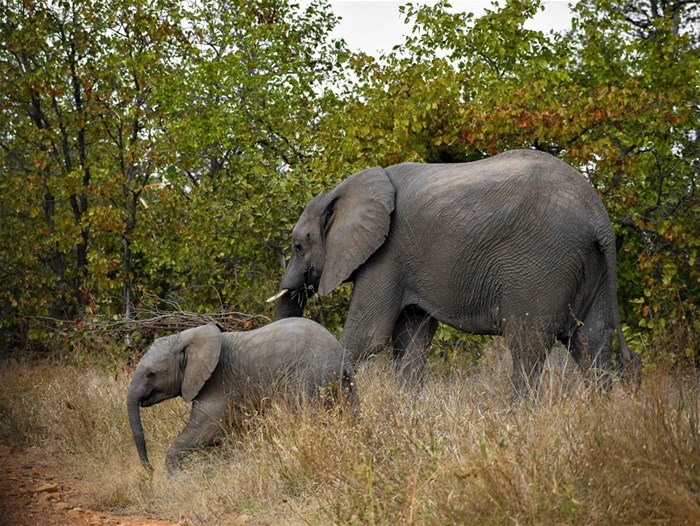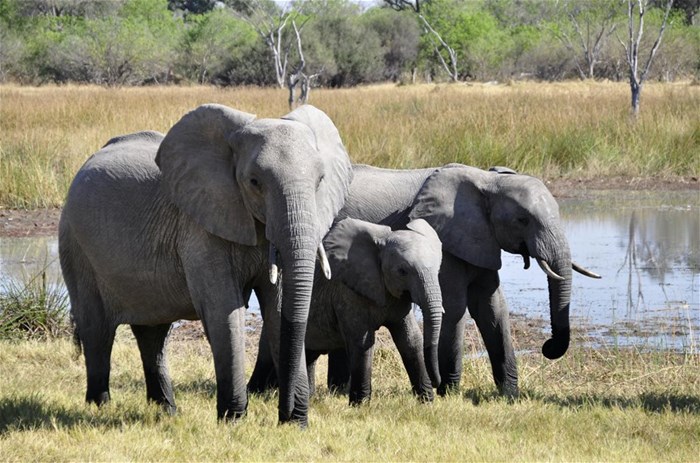World Wildlife Day is an annual event observed on 3 March that aims to raise awareness about the world's wild animals and plants and the need to protect them. If you live in a city far from natural wildlife, you can still be a part of celebrating and acknowledging this special day. Here are a few ways how.
Educate yourself
Taking the time to learn about different species of wildlife and their challenges is key to driving change. Raise your voice in support of wildlife!
Support conservation efforts
Often even supporting just one species will have a ripple effect. For example, the rhino, which is known as an ‘umbrella species’, represents much more to the environment than just being a member of the Big Five. It forms an integral part of an entire habitat that supports many different creatures, from insects to the symbiotic relationship the rhino has with, for example, the Oxpecker.
Endangered Wildlife Trust (EWT) needs support of its efforts to ensure the continued survival of an animal that remains the target of poachers for its most valuable asset - its horns. They fundraise to raise awareness and educate communities about rhino poaching, and assist teams from the EWT involved in anti-poaching efforts across the country. This includes their K9 unit which deploys detection and anti-poaching dogs to trouble zones to assist rangers and other enforcement teams in their work to try and prevent poaching incidents.
How you can help rhinos
One means to support rhino conservation is through Relate Bracelets, which is a non-profit that raises funds to support charitable causes by selling themed bracelets, and offers regular people an opportunity to support the conservation of these animals through buying themed bracelets. Relate Bracelets’ CEO, Dalit Shekel says: “It's not enough simply to make and sell something without meaning or context.”
“You can also make a real difference as an individual by advocating for policy change. Get involved in advocating for policies that protect wildlife and their habitats. This can involve writing to elected officials, signing petitions, or participating in campaigns organised by conservation organisations,” says Shekel.
Teach children about wildlife conservation
Daktari Bush School & Wildlife Orphanage, which is a wildlife orphanage and environmental education centre, places a strong emphasis on children's education about wildlife. The Hoedspruit-based non-profit recognises the vital role of educating youth in ensuring a sustainable future, and actively involves children in their wildlife education programmes.
Michele Merifield, co-founder of Daktari Bush School & Wildlife Orphanage says: “Through these initiatives, we aim to cultivate a generation that is conscious and committed to preserving nature. This gives local children access to their rich natural heritage. We encourage others to join the mission to raise a generation of passionate ecologists and to make South Africa a better place for all."
Through the combination of the bush school and the wildlife orphanage, Daktari has developed an immersive educational experience for local children to learn about the wildlife around them, the environment, anti-poaching initiatives, and a wide variety of other issues, right in the middle of the bush. The work extends into the local community through ECO Club at the secondary schools, outreach campaigning in several schools, and other community development projects.
Elephants need our help too
Elephants are recognised as a “keystone species” meaning that they define the entire ecosystem they are a part of. If the species were to disappear, no other species would be able to fill the ecological niche left behind. Best case scenario, the entire ecosystem would be forced to change in dramatic ways or worst case, cease to exist altogether.
These are some of the elephants’ contributions to the overarching ecosystems:
One single African Forest Elephant is estimated to be worth more than $1.75m in carbon offsets. This means that a single African Forest Elephant is effectively undoing emissions from 2,047 petrol cars for one year! Adding to this, African Savannah Elephants may distribute seeds farther than any other land mammal (up to 65km), they also play a significant role in maintaining tree diversity and seed banks across the landscape.
Elephants are the architects and ecosystem engineers of the African wilderness. As Africa’s largest land mammal, they help to conserve large areas of landscape by forging corridors between islands of wildlife safe havens. We can’t afford to lose them, or the habitats they need to thrive. Elephant conservation is not an African issue, it is a worldwide issue.
Elephants Alive has identified several landscape-planning elephants. These trailblazers connect four countries: South Africa, Zimbabwe, Mozambique and Eswatini. Some elephants travelled from the Kruger National Park in South Africa all the way through southern Mozambique and back into Tembe National Park in South Africa, through Eswatini, before finally returning to Kruger! Others went East towards the Futi corridor and to Maputo Special Reserve on the south-eastern coast of Mozambique.
Travelling close to 3000km, these elephants have indicated a major natural migratory route in need of protection. Without this corridor, the nature reserves would be mere isolated islands. It also indicated potential high-conflict zones where the elephant corridors overlap with densely populated human settlements.
Dr. Michelle Henley, CEO of Elephants Alive: “These elephants’ movements are our call to action to not only understand their spatial requirements but to urgently work towards ways to make people’s livelihoods compatible with conservation outcomes so that coexistence and connected landscapes can prevail.”
Elephants Alive works together with rural communities to develop and implement solutions to turn human-elephant conflict into co-existence, by ensuring people’s safety and food security in areas where elephants are moving outside of nature reserves and creating linkages between Protected Areas.
Remember, every action, no matter how small, can make a difference in protecting and conserving wildlife for future generations.

















































